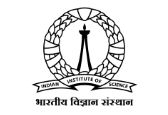BTech Biotechnology at NIIT University
One of the most immersive programmes offered by any BTech Biotechnology college.
- NU’s vision for Biotech
- Distinguishing Features
- Placements
- Industry Projects
- Student Projects
- Student Achievements
- Student Testimonials
- Programme architecture
- Meet Our Faculty
- Programme Outline
- Undergraduate Research
- Programme Specific Outcomes for Biotechnology
- Events & Conference
- BiO-Streaks
- Quiz Competition
- FAQs
B Tech Biotechnology: Overview
Purpose of the programme
NIIT University’s BTech Biotechnology programme is considered a highly immersive course offered by any BTech Biotechnology college in India. NU’s Btech Biotech programme is driven by the development of the theoretical knowledge base as well as the business needs of the Biotechnology sector. It comprises a flexible model where the course content continuously evolves with the rapid changes occurring in the Biotechnology industry. The courses provide competence in Biotechnology through training in the areas of Microbiology, Biological Chemistry, Analytical Techniques, Environmental Biotechnology, Bioprocess Technology, Immunology, Molecular Biology and Bioinformatics. The major thrust of the programme is towards integration of theoretical knowledge with a hands-on practical experience.
Read More
The course curriculum of the BTech Biotechnology programme at NU lays the foundation not only to enter the Biotech industry but the IT industry too. With various ignition grants from government and private funding agencies, students can become entrepreneurs and build their own start-ups. They can also enter the IPR industry as a patent analyst. Short-term research positions are open throughout the year at various institutions that provide real-time research experience making it easier for the students to decide the way ahead in their research careers. Being a research-driven field, students can pursue Master’s and doctoral programmes that enable them to work as a scientist in research laboratories and industry. Besides, they can choose academics following their PhD.
NU’s Biotechnology Vision
To be nationally recognized for research, education, and innovation in Biotechnology & Bioinformatics contributing to sustainable development and providing solutions across diverse sectors of the industry.
NU’s Biotechnology Mission
- Conduct cutting-edge research to solve complex biological problems and advance scientific knowledge in Biotechnology & Bioinformatics.
- Provide a comprehensive and interdisciplinary education that equips students with the skills needed to excel in Biotechnology & Bioinformatics.
- Foster professional development through hands-on training, internships, and industry collaborations.
- Promote innovative biotechnological solutions and bioinformatics tools for sustainable development and healthcare advancements.
BTech Biotech – Distinguishing Features
BTech Biotechnology – Placements
Placement Partners
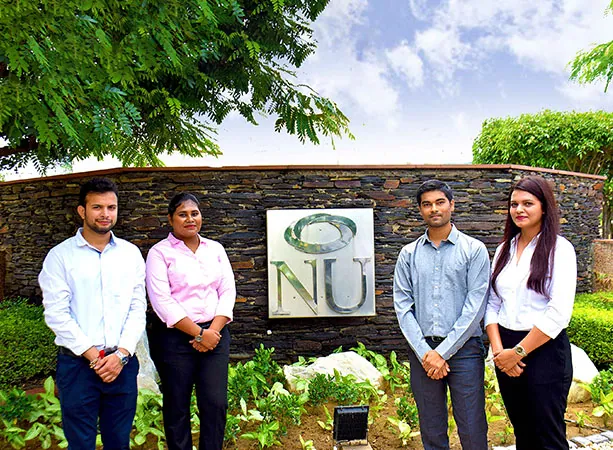
100%
BTech Biotechnology – Industry Projects
Institution: Daksh Hospital
Theme: Threat Intelligence
Project: Looking at the different types of waste generated in the hospital and finding solutions to take care of the waste, increase safety levels of an individual dealing with the waste and finding ways to minimize any impact of the waste on the hospital.
Institution: IIT Ropar
Theme: Continuous glucose monitoring machine
Project: Patent search followed by the creation of design prototype and finalizing the design.
Institution: Britannia Industries Limited
Theme: Quality analysis of raw material and packaging material
Project: Analyzing raw material for the packaging of cakes. Working on the company’s r testing parameters, physical, analytical and microbial analysis techniques.
BTech Biotechnology – Student Projects
| Project | Faculty Mentor |
|---|---|
| Machine learning based classification of breast cancer data. | Utkarsh Raj |
| Identification of key genes involved in periodontal macrophages and fibroblast using microarray-based data and network analysis. | Utkarsh Raj |
| In-silico characterisation and exploitation of CRISPR system in Lactic acid bacteria. | Narayan Kumar |
| In-silico detection and identification of cancer-specific peptide-HLA complexes for targeted therapy. | Narayan Kumar |
| Construction of broad host range prokaryotic expression vector by promiscuous plasmid of Lactic acid bacteria. | Narayan Kumar |
| In-silico drug design against COVID. | Narayan Kumar |
| Characterisation of pyranose oxidoreductase from bacterial origin. | Soumyadeep Chakraborty |
| Biochemical and functional characterisation of pyranose oxidoreductase from Actinomycetes. | Soumyadeep Chakraborty |
| Purification and structural characterisation of pyranose oxidoreductase from Actinomycetes. | Soumyadeep Chakraborty |
| Enzyme-based biosensor for glucose detection. | Soumyadeep Chakraborty |
| Identification of carbohydrate binding modules (CBM) to study surface glycoprotein interaction. | Soumyadeep Chakraborty |
| Identification of novel dysregulated genes in ovarian cancer using NGS data analysis. | Utkarsh Raj |
| Computational approach to identify potential biomarkersbiomarker for the early detection of oral cancer. | Utkarsh Raj |
| Virtual screening, molecular docking & simulation studies towards the discovery of HPV16/18-E7 natural inhibitors for cancer. | Utkarsh Raj |
| Computational approach to identify potential biomarkersbiomarker for the early detection of oral cancer. | Utkarsh Raj |
| Virtual screening, molecular docking & simulation studies towards the discovery of HPV16/18-E7 natural inhibitors for cancer. | Utkarsh Raj |
| Meta-analysis of gene expression datasets of coronaviruscorona virus for identifying drug targets. | Utkarsh Raj |
| Differential gene expression analysis of pancreatic ductal adenocarcinoma utilizing RNA-sequencing data. | Utkarsh Raj |
| Role of probiotics in regulation of host immunity. | Gaurav Gupta |
| Characterisation of novel bacteria isolated from cow dung and its effect on host immunity. | Gaurav Gupta |
| Characterisation of novel bacteria isolated from cow dung and its effect on cancer cells. | Gaurav Gupta |
| Developing antimicrobial nanocomposites as an efficient drug delivery system. | Sudeep Goswami |
| Green synthesis of silver nanoparticle/iron nanoparticles under various parameters and probing its antimicrobial potency. | Sudeep Goswami |
Student achievements

NU Biotech students shine in international shores
Student Name: Prachi Singh (Batch 2012-2016)
Institute: M.Sc. – Biotechnologies for Food Science, University of Padova, Italy (2019-2021)
Student Name: Deepansh Mody (Batch 2013-2017)
Institute: MS – Microbiology, Purdue University (2018-2019)
Student Name: Varun Venkatakrishnan (Batch 2015-2019)
Institute: MS – Biological Sciences, National University of Singapore (2020-2021)
Student Name: Yagika Kaushik (Batch 2015-2019)
Institute: MS – Neuroscience, The University of Lethbridge, Canada (2021-2023)
Student Name: Lasya Priya Kanchi (Batch 2017-2021)
Institute: MS – Biological and Biomolecular Science, University College Dublin (2021-2022)
Student Name: Sumili Dey (Batch 2016-2020)
Institute: MS – Biotechnology, Bioinformatics and Bio-Business, University of Aberdeen, Scotland (2021-2022)
Student testimonials

Sourabh Asharma
BTech – Biotechnology (3rd year)
"NIIT University (NU) has been a great contributor to the development of my personality. NU has helped me develop and augment my skills in leadership, time management and team building. The faculty here make the university what it is today. They have a wonderful attitude to help students and teach with a lot of passion. Collaborating with the students of various subject areas has also enriched my knowledge and gave me the understanding of using an interdisciplinary approach to look at any problem and find solutions. Overall, it has been a wonderful experience with NU."


Sparsh Kumar
BTech – Biotechnology (4th year)
"I am glad to be studying at NIIT University (NU). I am particularly lucky to be a part of the Biotechnology & Bioinformatics area. From the study point of view, NU has one of the best classrooms, labs and one of the best groups of learned faculty for guiding and nurturing us. Various competitions and events help me gain confidence and knowledge. It leads to the overall development as an individual. Classroom teachings as well as the labs help me to grow in the technical aspect of each subject. I really enjoy my life while studying here and I am proud & grateful to be a 'NUton'.


Sruti Subramanian
BTech – Biotechnology (2nd year)
"I wasn’t sure of what course I wanted to pursue but was sure that I wanted to do something in the field of biology. I began my search, that’s when I came across NIIT University (NU). I was given admission in many other institutes, but I chose NU for its course content, excellent placement records, its provision of friendly student and professor interaction, and its lush green campus. This programme provides ample practical laboratory hours parallel to theoretical learning. In addition, this program helps in improving soft as well as interpersonal skills required in the field of biotechnology.
Overall, I can say NU has helped me to believe in myself and has made me a better person."

Meet our faculty

Dr Chhavi Sharma
Post Doctoral Fellow
Biotechnology and Bioinformatics Area
"Dr Chhavi Sharma earned her PhD degree in Animal Biotechnology and Molecular Neuroscience from M.L S University, Udaipur, in 2015. The central component of her research has been Environmental and Phytochemical effects on Memory, Learning, and Neurological disorders. She has been awarded for the science-based business project “Red Bio crust” by CSIR-HRDG, during the 8th TLEP entrepreneurship program and the prestigious International Brain Research Organization –Asia Pacific travel Grant for training. Dr Chhavi has many publications in peer-reviewed national, international, and Scopus journals and four book chapters to her credit. She has been awarded ‘Best Paper Presentation’ by the Indian Academy of Neurosciences and the Society of Reproductive Biology and Comparative Endocrinology. Her current research focuses on the Rewilding of the Aravalli hills of Neemrana, Rajasthan, having a major focus on the eradication of invasive flora."

BTech Biotechnology – Programme Outline
| Course category | Credits |
|---|---|
| Mathematics & Basic Sciences | 20 |
| Engineering Sciences & Technical Arts | 22 |
| HSS + Communication Skills | 18 |
| Professional Core | 55 |
| Professional Electives | 20 |
| Open Electives | 12 |
| Capstone Projects | 8 |
| R&D Project | 4 |
| Industry Practice | 20 |
| Total credits | 179* |
*(i) Students with PCM would be considered as Admission with Advanced Standing and will not be required to do the three remedial Maths courses, namely Remedial Math-I, Remedial Math-II and Remedial Math-III. They will have to do a deficiency course in Cell Biology.
(ii) Students with PCMB would be considered as Admission with Advanced Standing and will not be required to do the three remedial Maths courses named above as also the Cell Biology course.
Professional Core courses
- Remedial Biology
- Microbiology
- Biological Chemistry
- Analytical Techniques
- Computational Biology
- Genetic Engineering
- Biochemical and Bioprocess Engineering
- Environmental Biotechnology
- Food Biotechnology
- Plant & Animal Biotechnology
- Molecular Biology
- Industrial Biotechnology
- Immunology
- Biosafety, Bioethics & IPR
- Capstone Project – I
- R&D Project
- Capstone Project – II
- Industry Practice
Professional electives
Environmental Biotechnology
- Agricultural Microbiology
- Industrial Waste Management
- Solid Waste Management
- Waste Water Management
Plant Biotechnology
- Plant Physiology
- Plant Tissue Culture
- Plant Pathology
Computational Biology / Bioinformatics
- Biological Sequence Analysis
- Genomics and Proteomics
- Algorithm for Bioinformatics
- Data Mining for Bioinformatics
- Molecular Modeling and Drug Designing
Industrial Biotechnology
- Microbial Metabolic Engineering
- Protein Engineering
- Synthetic Biology
- Biosensors
- Enzyme Technology
Medical Biotechnology
- Cancer Biology
- Virology
- Biopharmaceuticals
- Biomedical Engineering
- Gene expression & regulation
Food Biotechnology
- Food Microbiology
- Food Process Technology
- Food Preservation Technology
- Food Process Engineering
- Food Analysis & Quality Control
- Food Packaging Technology
Open electives
- Perl and Bioperl
- Python and Biopython
- Nanotechnology
Undergraduate research
Specialisation
- Environmental Biotechnology
- Plant Biotechnology
- Industrial Biotechnology
- Bioinformatics
- Food Biotechnology
- Medical Biotechnology
BTech Biotechnology – Programme Architecture
| Course code | Course | L | T | P | C |
|---|---|---|---|---|---|
| MAT 011 | Remedial Math-I/Remedial Biology | 2 | 2 | 0 | 4 |
| BIO 001 | 3 | 0 | 3 | 4 | |
| EL 111 | Fundamentals of Electronics | 3 | 1 | 0 | 4 |
| TA 111 | Fundamentals of Computer Programming | 2 | 0 | 4 | 4 |
| CHM 111 | Science-I (Chemistry & Biology) | 3 | 0 | 3 | 4 |
| TA 202 | Engineering Graphics/Workshop Practice | 2 | 0 | 2 | 3 |
| TA 212 | 1 | 0 | 4 | 3 | |
| TA 102 | Communication Skills/HSSM-I | 2 | 0 | 2 | 3 |
| 3 | 0 | 0 | 3 | ||
| NU 111 | Community Connect | 0 | 0 | 2 | 1 |
| Total Semester L-T-P-C | 19 | 3 | 20 | 23 |
| Course code | Course | L | T | P | C |
|---|---|---|---|---|---|
| MAT 012 | Remedial Math-II | 2 | 2 | 0 | 4 |
| MAT 022 | Remedial Math III | 2 | 2 | 0 | 4 |
| CS 102 | Data Structures | 3 | 0 | 3 | 4 |
| BIO 112 | Microbiology | 3 | 0 | 3 | 4 |
| TA 212 | Workshop Practice/Engg Graphics | 1 | 0 | 4 | 3 |
| TA 202 | 2 | 0 | 2 | 3 | |
| HSSM-I/Communication Skills | 2 | 0 | 2 | 3 | |
| NU 112 | Community Connect | 0 | 0 | 2 | 1 |
| Total Semester L-T-P-C | 15 | 4 | 16 | 26 |
| Course code | Course | L | T | P | C |
|---|---|---|---|---|---|
| CHM 201 | Thermodynamics | 3 | 0 | 0 | 3 |
| BIO 201 | Biological Chemistry | 3 | 0 | 3 | 4 |
| BT 212 | Analytical Techniques | 3 | 0 | 2 | 4 |
| BIO 202 | Molecular Biology | 3 | 0 | 3 | 4 |
| PHY 101 | Science II (Physics) | 3 | 0 | 3 | 4 |
| HSSM-II | 3 | 0 | 0 | 3 | |
| NU 211 | Community Connect | 0 | 0 | 2 | 1 |
| Total Semester L-T-P-C | 18 | 0 | 13 | 23 |
| Course code | Course | L | T | P | C |
|---|---|---|---|---|---|
| BT 302 | Computational Biology | 3 | 0 | 3 | 4 |
| BT 311 | Genetic Engineering | 3 | 0 | 3 | 4 |
| BT 352 | Biochemical and Bioprocess Engineering | 3 | 0 | 3 | 4 |
| BT 401 | Environmental Biotechnology | 3 | 0 | 3 | 4 |
| CS 231 | Database Management Systems | 3 | 0 | 2 | 4 |
| HSSM-III | 3 | 0 | 0 | 3 | |
| NU 212 | Community Connect | 0 | 0 | 2 | 1 |
| Total Semester L-T-P-C | 18 | 0 | 16 | 24 |
| Course code | Course | L | T | P | C |
|---|---|---|---|---|---|
| BT 411 | Food Biotechnology | 3 | 0 | 3 | 4 |
| BT 331 | Plant & Animal Biotechnology | 3 | 0 | 3 | 4 |
| BT 321 | Capstone Project -I | 1 | 0 | 6 | 4 |
| Professional Elective – I | 3 | 0 | 3 | 4 | |
| BT 312 | Industrial Biotechnology | 3 | 0 | 3 | 4 |
| HSSM-IV | 3 | 0 | 0 | 3 | |
| NU 311 | Community Connect | 0 | 0 | 2 | 1 |
| Total Semester L-T-P-C | 16 | 0 | 20 | 24 |
| Course code | Course | L | T | P | C |
|---|---|---|---|---|---|
| BT 461 | Immunology | 3 | 0 | 3 | 4 |
| Open Elective – I | 3 | 0 | 2 | 4 | |
| Professional Elective – II | 3 | 0 | 2 | 4 | |
| Professional Elective – III | 3 | 0 | 2 | 4 | |
| NU 302 | R & D Project | 1 | 0 | 6 | 4 |
| HSSM-V | 3 | 0 | 0 | 3 | |
| NU 312 | Community Connect | 0 | 0 | 2 | 1 |
| Total Semester L-T-P-C | 16 | 0 | 17 | 24 |
| Course code | Course | L | T | P | C |
|---|---|---|---|---|---|
| Professional Elective – IV | 3 | 0 | 3 | 4 | |
| Professional Elective – V | 3 | 0 | 3 | 4 | |
| BIO 212 | Biosafety, & Ethics & IPR | 3 | 0 | 0 | 3 |
| Open Elective – II | 3 | 0 | 3 | 4 | |
| Open Elective – III | 3 | 0 | 3 | 4 | |
| BT 4121 | Capstone Project – II | 1 | 0 | 6 | 4 |
| NU 411 | Community Connect | 0 | 0 | 2 | 1 |
| Total Semester L-T-P-C | 16 | 0 | 20 | 24 |
| Course code | Course | L | T | P | C |
|---|---|---|---|---|---|
| NU 402 | Industry Practice/Project | 0 | 0 | 40 | 20 |
BTech Biotechnology – Events & Conferences
Workshop on ‘Machine Learning and Bioinformatics: Unlocking Insights from Gene Expression Data’
A two-day workshop encompassing the domains of Machine Learning and Bioinformatics was successfully organised by the area to enable students to acquire data-driven insights.
Designed specifically for 2nd and 3rd year BTech Biotechnology students, this workshop, held from April 21-22, 2025, offered hands-on training in applying machine learning techniques to gene expression data — a crucial blend of computational analysis and biological research.
Dr. Ashwani Kumar, Sr. Faculty at Chandigarh University, was the distinguished resource person. Drawing from his rich experience at CSIR-IHBT, Sir Ganga Ram Hospital, and Jaypee University, Dr. Kumar delivered sessions that connected research with practice. The workshop was coordinated by Dr. Utkarsh and Dr. Sanjeev, whose efforts were instrumental in making this learning experience impactful and engaging. This is one of the may initiatives to foster interdisciplinary skills and preparing students for real-world challenges in the life sciences.
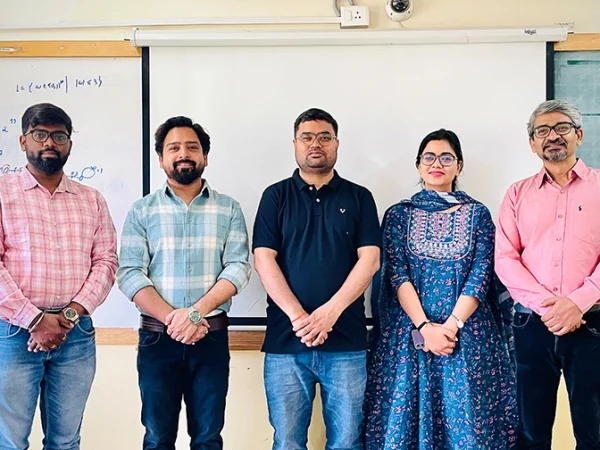
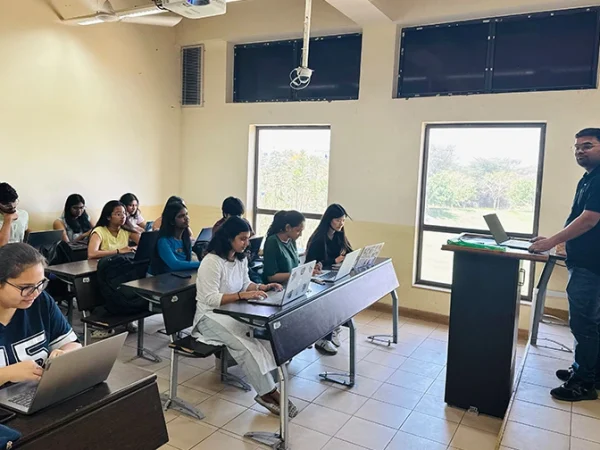
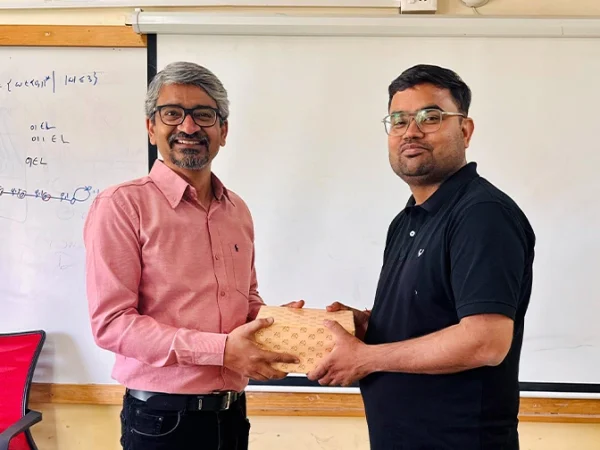
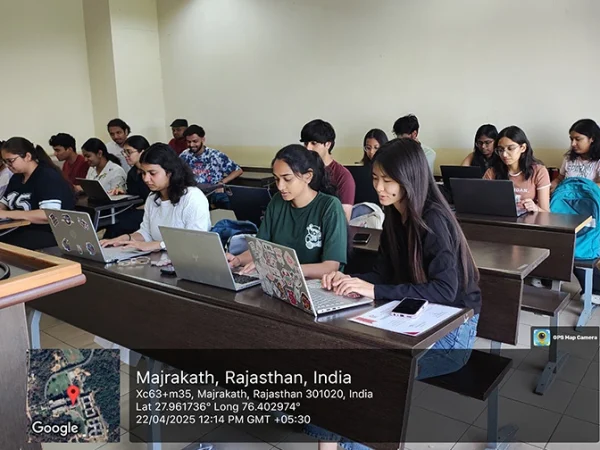
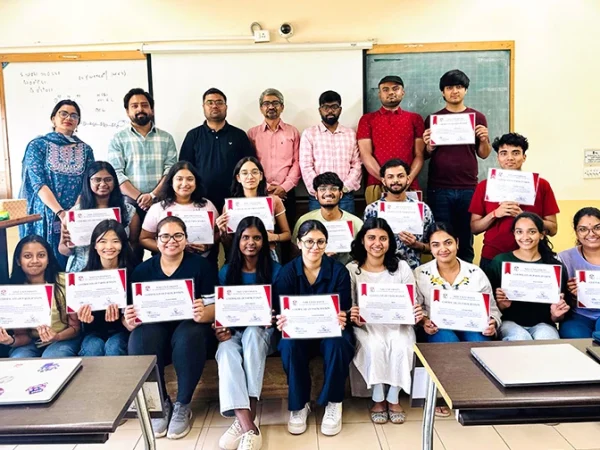
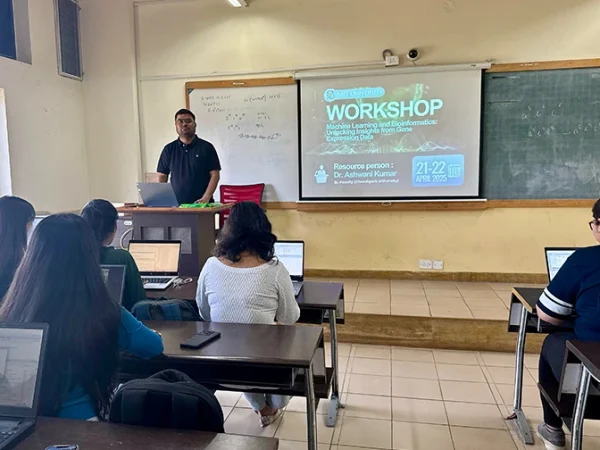
Celebrating Science & Innovation on National Science Day 2025
On National Science Day, which falls on February 28 to honour Sir C V Raman who discovered the Raman effect, the biotechnology department organized an Environmental Biology Quiz to inspire aspiring engineers towards scientific excellence and environmental awareness.
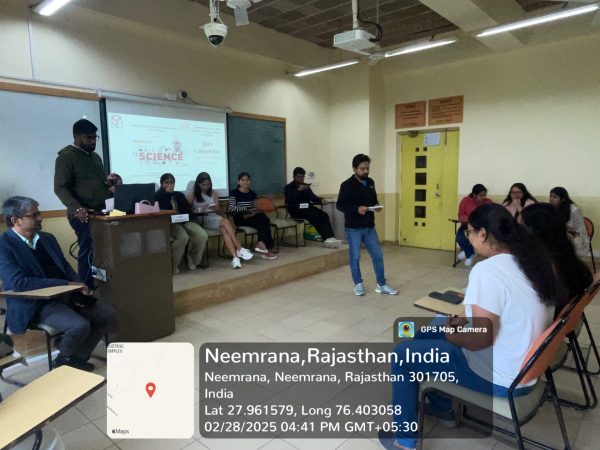
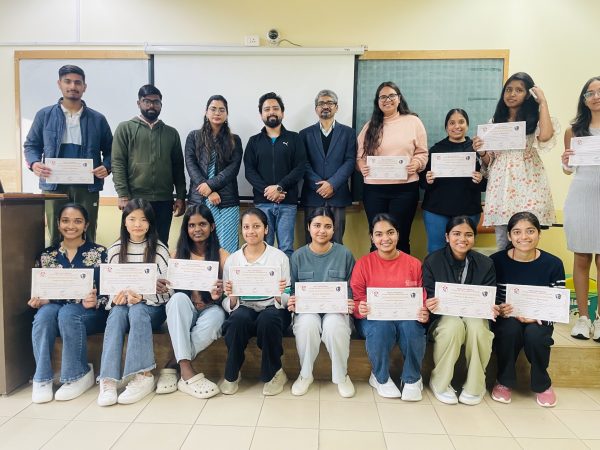
Winners:
🥇Team Earth Defenders
🥈 Team Green Guardians
🥉 Team Eco Warriors
A huge shoutout to all participants for their enthusiasm and competitive spirit! Special thanks to event coordinators Ms Shivani Varshney and Dr Vikash Kumar. The quiz was conducted by Dr Utkarsh, and Dr Sanjeev Kumar awarded the prizes. Together, we move towards VIKSIT BHARAT – Empowering Indian youth for global leadership in science and innovation!
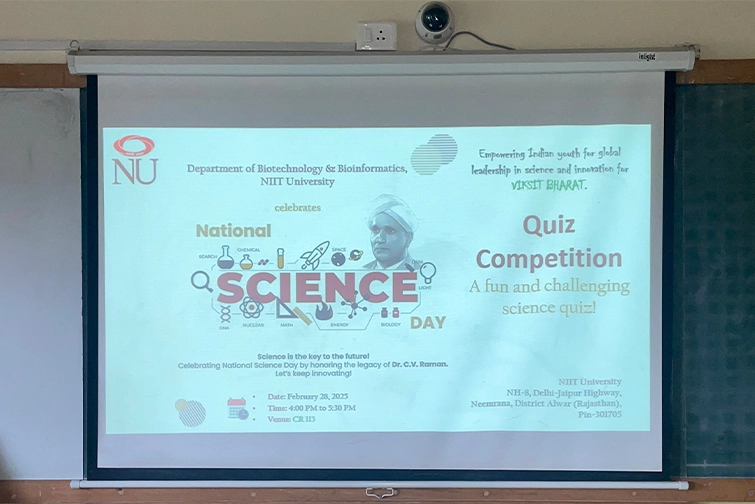
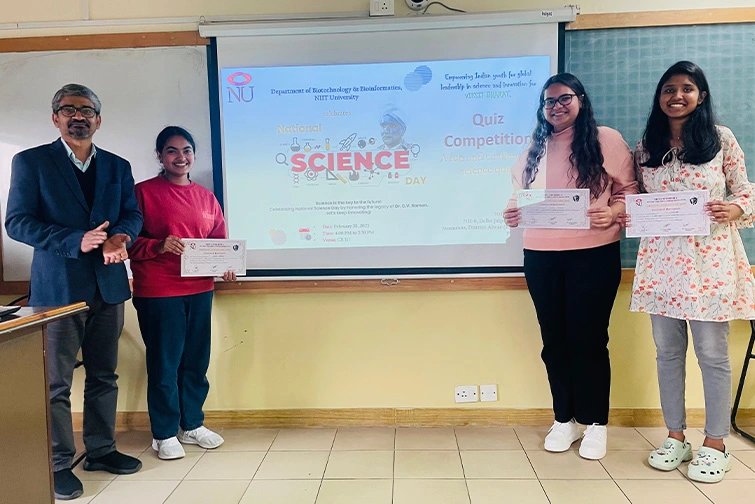
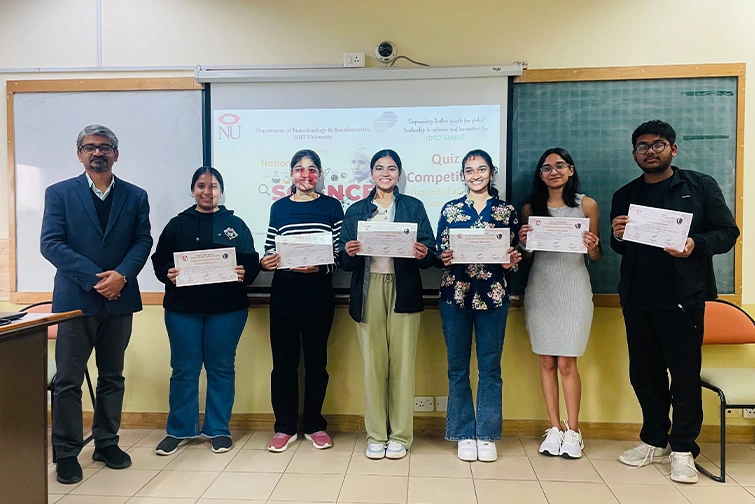
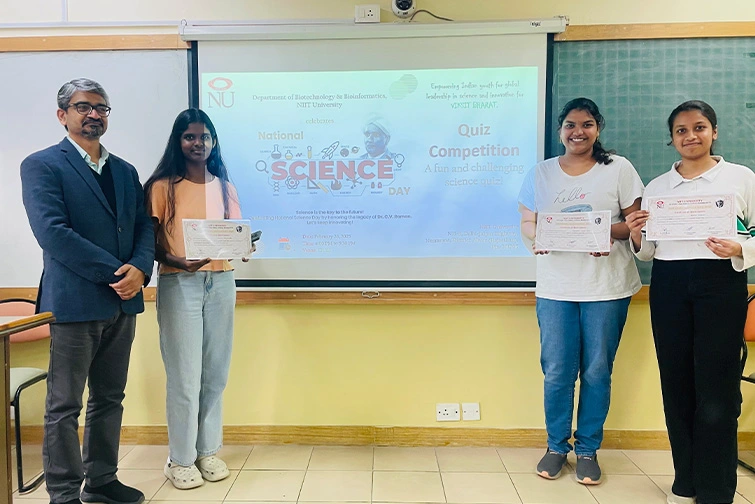
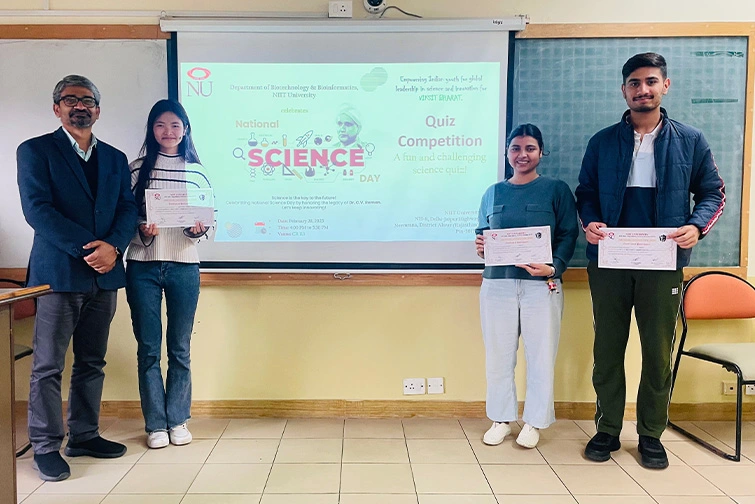
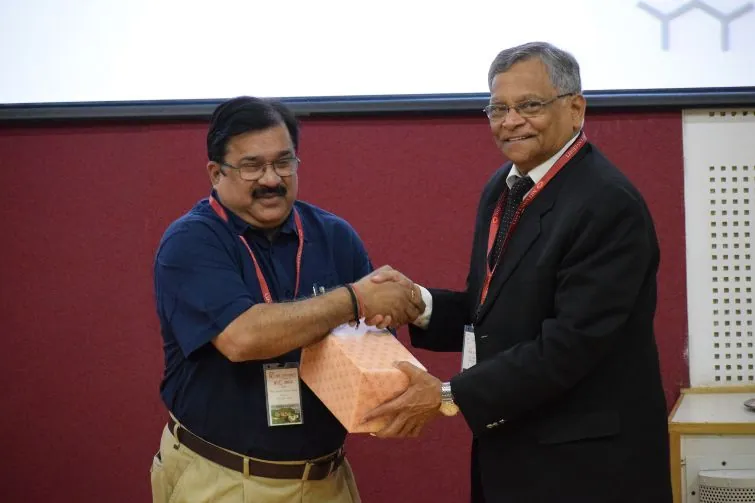
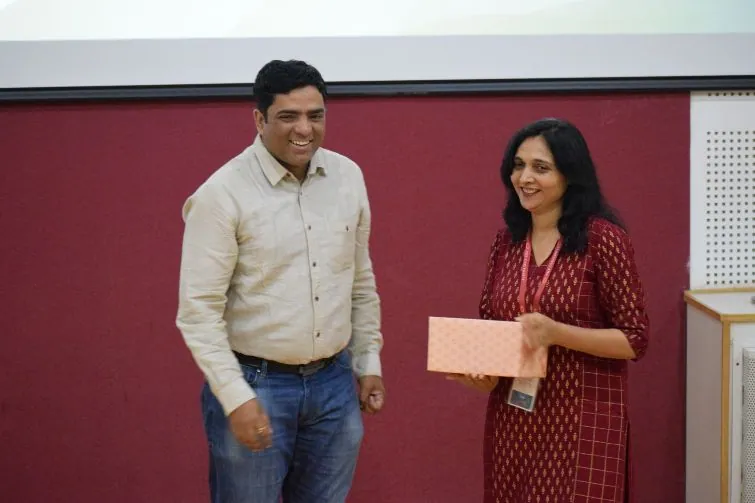
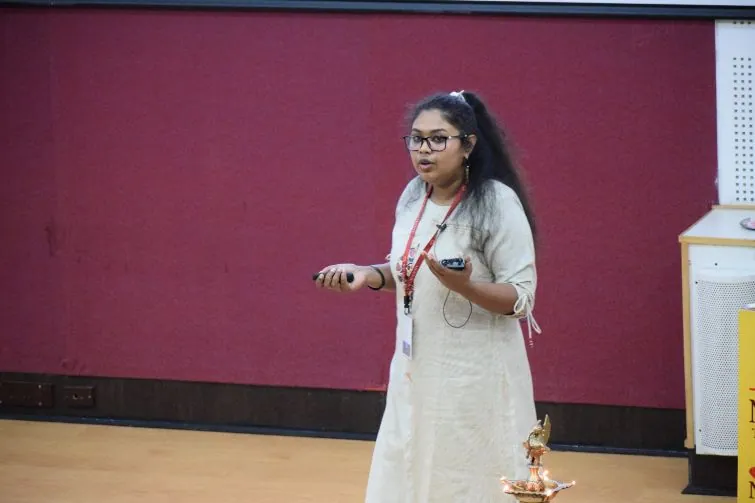
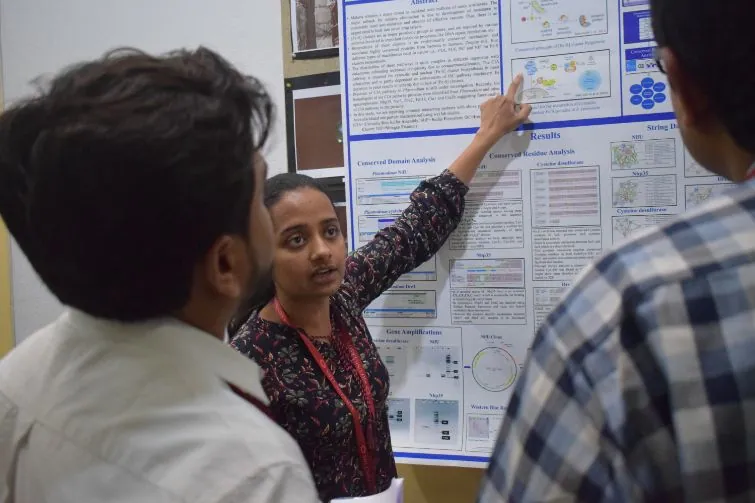
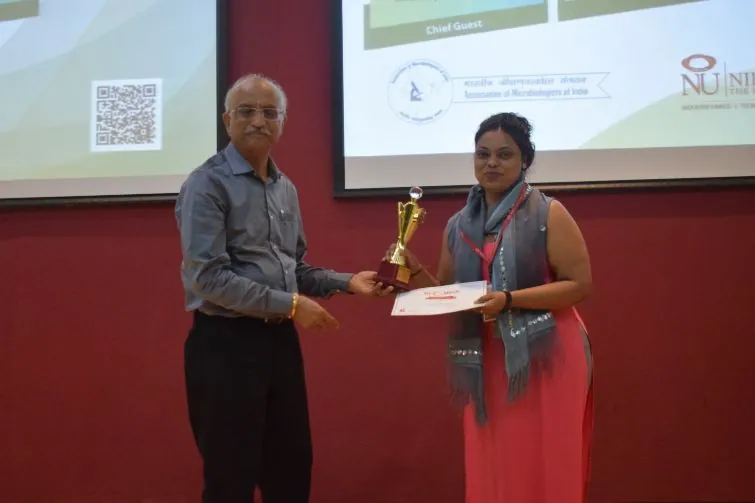
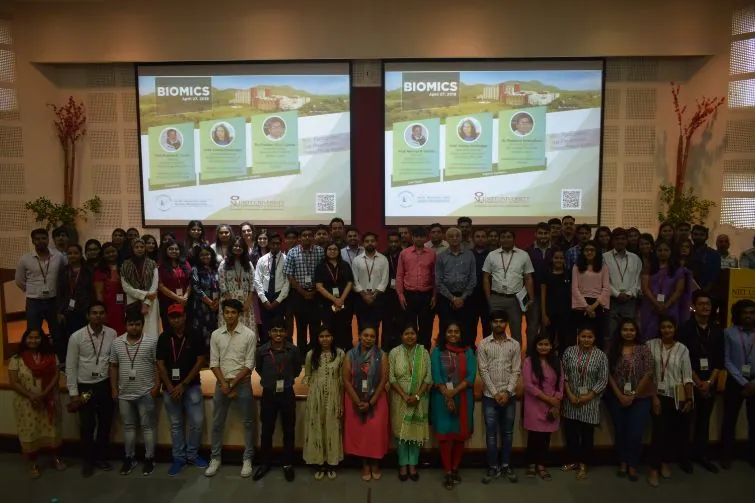
BiO-Streaks, 2019 (BT Tech Fest Events)
Biotechnology Annual Quiz Competition, 2020
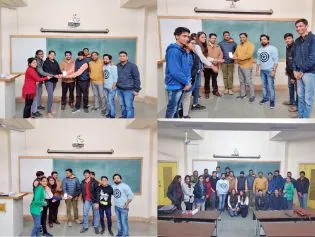
Agar Art Contest
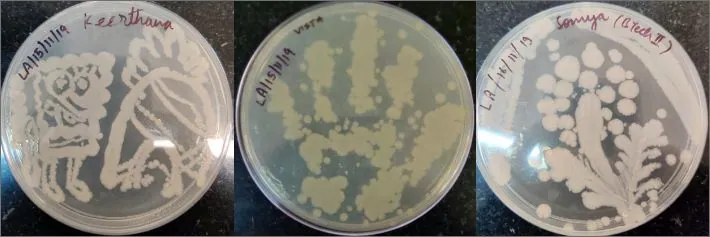
Quiz Competition
Lorem ipsum dolor sit amet, consectetur adipiscing elit. Ut elit tellus, luctus nec ullamcorper mattis, pulvinar dapibus leo.
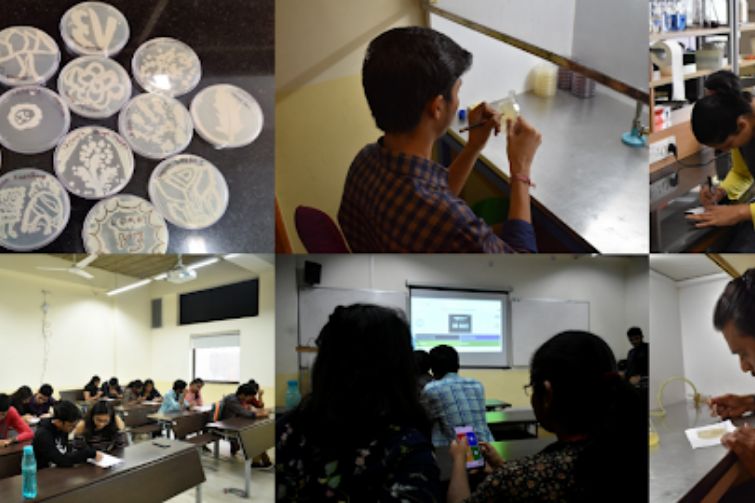
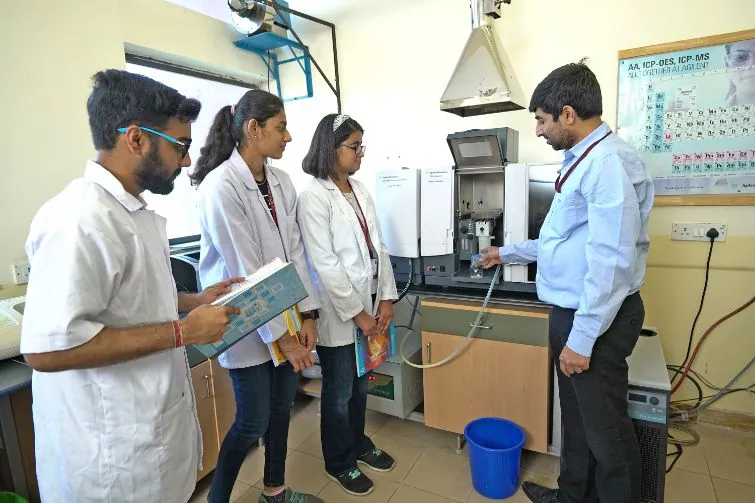
Programme outcomes
PO1
Engineering knowledge
Apply the knowledge of Mathematics, Science, fundamentals of Engineering and an engineering specialisation to the solution of complex engineering problems.
PO2
Problem analysis
Identify, formulate, review research literature, and analyse complex engineering problems to reach substantiated conclusions using first principles of Mathematics, Natural Sciences, and Engineering Sciences.
PO3
Design/Develop solutions
Design solutions for complex engineering problems and system components or processes that meet specified needs with appropriate consideration for public health and safety, and cognisant of cultural, societal, and environmental considerations.
PO4
Conduct investigations of complex problems
Use research-based knowledge and research methods including design of experiments, analysis and interpretation of data, and synthesise information to provide valid conclusions.
PO5
Modern tool usage
Create, select, and apply appropriate techniques, resources, and modern engineering and IT tools including prediction and modelling to complex engineering activities with an understanding of the limitations.
PO6
The engineer and society
Apply reasoning informed by contextual knowledge to assess societal, health, safety, legal and cultural issues, and the consequent responsibilities relevant to the professional engineering practice.
PO7
Environment and sustainability
Understand the impact of professional engineering solutions in societal and environmental contexts, and demonstrate the knowledge of, and need for sustainable development.
PO8
Ethics
Apply ethical principles and commit to professional ethics and responsibilities and norms of the engineering practice.
PO9
Individual and teamwork
Function effectively as an individual, and as a member or leader in diverse teams, and in multidisciplinary settings.
PO10
Communication
Communicate effectively on complex engineering activities with the engineering community and with society at large. This includes being able to comprehend and write effective reports and design documentation, make effective presentations, and give and receive clear instructions.
PO11
Project management and finance
Demonstrate knowledge and understanding of engineering and management principles and apply these to one’s own work, as a member and/or leader in a team, to manage projects in multidisciplinary environments.
PO12
Life-long learning
Recognise the need for, and have the preparation and ability to, engage in independent and life-long learning in the broadest context of technological change.
Programme specific outcomes
PSO1
PSO2
PSO3
PSO4
PSO5
PSO6
FAQs
1. What is BTech Biotechnology?
2. What to do after BTech biotechnology?
- Work with a scientist as JRF/Research/Project Fellows
- Apply for a job in the private sector – Food & Beverages industries, Clinical Research, Data Science, Drug Pharmaceutical companies, Bioprocessing-based Industries, Waste Management/Environment Control, etc.
- Become an entrepreneur
- Sales and Marketing in a Biopharma company
- Opportunities in the Government & Public Healthcare sector
- Job in Intellectual Property Research and Patenting
- Scientific writing and medical editing
- Pursue post-graduation/higher studies in Biotechnology
3. BSc Biotechnology or BTech Biotechnology, which is better?
- BSc Biotechnology is of 3 years while BTech Biotechnology extends over a span of 4 years.
- The educational program of BSc Biotechnology lays more emphasis on the theoretical aspects of the various subjects while BTech Biotechnology focuses attention on the application of theoretical knowledge.
- In BSc Biotechnology, undergraduates have a relaxed timetable with moderate laboratory work in the second year. In contrast, BTech Biotechnology’s second year begins with a great number of major subjects and rigorous laboratory work. Apart from this, in BTech Biotechnology, the curriculum is advanced level with technology-oriented life science subjects such as Microbial Technology, Fermentation, Immunology, Molecular Biology, Genetic Engineering, Recombinant DNA Technology, etc.
- For BTech Biotechnology students, the scope is not limited. Rather, it is so broad that students can easily venture into any stream with ease. A candidate who acquires the combination of right skills has a huge scope to evolve in the field of biotechnology.
